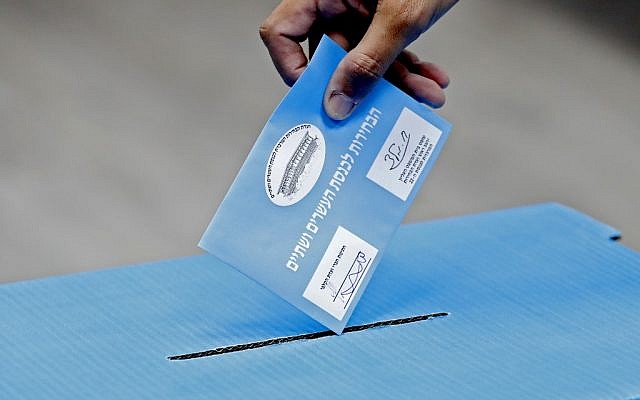Few Israeli Parties Will Remain
Since Israel was founded in 1948, nearly 200 different political parties have competed in the many national elections.
Since Israel was founded in 1948, nearly 200 different political parties have competed in the many national elections. A majority of these parties survived only a few years, and most are no longer around. About half of the 200 managed to capture seats in the Israeli parliament, or Knesset, at one point or another.
On March 2, in the third wave of elections to be held in less than a year, Israeli voters will choose from 30 different parties. But according to Dr. Ofer Kenig, a researcher at the Jerusalem-based Israel Democracy Institute, the record low number of parties in the outgoing Knesset may be broken in the upcoming election with a new low.
“Based on recent opinion surveys, only eight [party] lists are expected to make it past the threshold and into the Knesset,” he said, pointing out that the current Knesset is comprised of nine parties. He explained that the declining number of parties is a result of the Knesset raising the electoral threshold in 2015 to 3.25 percent, meaning each party must capture more than 3.25 percent of votes cast in order to be seated in the 120-member Knesset.
That means, like in most elections before this one, parties that the American Jewish community never hears about will essentially disappear on March 3.
In the past, parties such as Man’s Rights in the Family Party, The Pirate Party of Israel, or the Casino Party didn’t make it into Israel’s consciousness, let alone America’s. Other parties such as the Center Party, The Third Way and Shinui (Change) party came and went.
This time around, one of the newest parties, Mishpat Tzedek, or Fair Trial, already is being written off by political pundits. Mishpat Tzedek is headed by Larissa Trimbobler-Amir, wife of Yigal Amir, assassin of the late Prime Minister Yitzhak Rabin, who received a life sentence for his crime. The Central Elections Committee, which must approve all registered parties, agreed that Mishpat Tzedek could compete in the election as long as it doesn’t condone the assassination. Mother of the assassin, Guela Amir, is number six on the list of the party whose goal is to obtain a retrial for Amir and other “unjustly jailed prisoners.”
After the elections last April and September, no party was able to cobble together a majority coalition. Neither the various parties on the right of the political spectrum nor the left could muster the majority of 61 votes. As of this writing, observers are not expecting any real change in the upcoming election.

The IDI does foresee, however, a continuing decline in the number of women in the Knesset, dropping to fewer than 30 of the 120 members. In the April election, the number of female Knesset members declined from 35 in 2015 to 30. That placed Israel’s international ranking of female representation at 69th, down from 54th in 2015.
The only real wild card in this March election is Prime Minister Benjamin Netanyahu’s future. This week the Knesset was to convene to vote on the creation of a committee that will review Netanyahu’s request for immunity in three corruption cases. Both in that committee, and in the wider Knesset, lawmakers are expected to vote against granting him immunity. He is the first sitting prime minister to be indicted, in his case, for bribery, fraud and breach of trust. Only if or when the immunity is rejected, will a trial date be set in the Jerusalem District Court.




comments